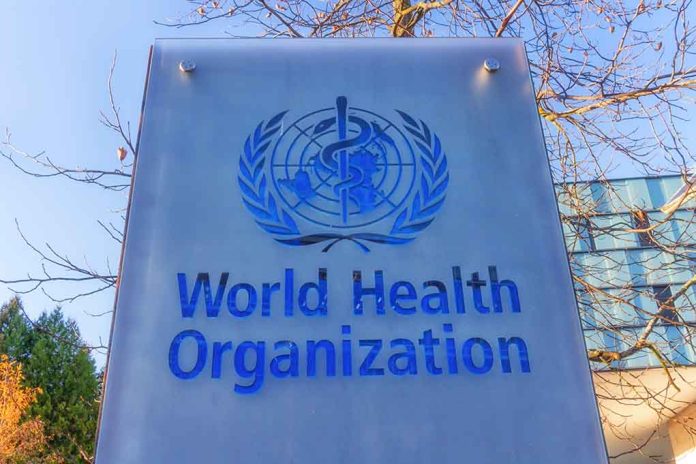
A particularly lethal variant of monkeypox has been declared a global health emergency by the World Health Organization, raising urgent calls for international coordination to prevent further outbreaks.
At a Glance
- WHO declares mpox a global health emergency due to rapid spread in African countries
- Second global emergency declaration for mpox in two years
- Current outbreak in DRC: 15,600 cases and 537 deaths reported
- Women and children identified as most at-risk groups
- Africa CDC declares a “public health emergency of continental security”
WHO Declares a Global Health Emergency for Mpox
The World Health Organization (WHO) has declared a global health emergency due to the rapid spread of a deadly mpox variant in several African countries. The organization’s Director-General emphasized the need for a coordinated international response to combat this lethal outbreak. This is the second time in two years that mpox has been declared a global emergency.
“The World Health Organization on Wednesday declared the ongoing mpox outbreak in Africa a global health emergency.”
The 2022 outbreak affected nearly 100,000 people in 116 countries, primarily among gay and bisexual men, resulting in approximately 200 deaths. The current outbreak in the Democratic Republic of Congo (DRC) is more severe, with 15,600 cases and 537 deaths reported since the beginning of the year. The virus has since spread to 13 other African countries, many of which had no previous cases.
Clade I, the more transmissible and severe strain of mpox, has historically caused up to a 10% mortality rate in past outbreaks. New strains, such as clade Ib, have now emerged and are spreading more easily through close and sexual contact, extending to countries like Burundi, Kenya, Rwanda, and Uganda.
“Clade 2 caused a public health emergency in 2022 but was deemed relatively mild. Clade 1 has a high fatality rate and a mutant strain of it, called Clade 1b, has spread rapidly.”
The Urgency of Coordinated International Response
WHO Director-General has called for an urgent, synchronized effort from countries worldwide to fund, improve, and enact robust health measures to prevent further transmissions. “Without urgent action, the consequences could be deadly and far-reaching,” he stated.
On Wednesday, the World Health Organization declared a global emergency amid a deadly outbreak of mpox (also known as monkeypox) in Africa. https://t.co/4Tu0Pyjhmn
— FOX 5 DC (@fox5dc) August 15, 2024
The declaration of a global health emergency allows the WHO to mobilize funding more efficiently and coordinate use of vaccines and medical tools. The WHO has already released US$ 1.45 million from its Contingency Fund for Emergencies, and further funding may be needed to contain the outbreak.
To protect public health effectively, the WHO recommends the use of two vaccines approved by national regulatory authorities. The organization is also coordinating the donation and equitable distribution of vaccines to ensure all affected areas have access to these crucial medical resources. For instance, the United States has donated 50,000 doses to the DRC.
The Most Vulnerable Groups
Women and children under 15 have been identified as the most at-risk groups in this outbreak. This highlights the need for targeted health measures and education campaigns to protect these vulnerable populations.
The mpox virus, previously known as monkeypox, spreads through close contact, causing symptoms such as rash, fever, headache, muscle aches, back pain, low energy, and swollen lymph nodes. Increased awareness and vigilant public health surveillance are essential to manage and prevent the further spread of the virus.
CDC has already issued travel advisories for the DRC and neighboring countries. They have also advised doctors to be alert for mpox symptoms in individuals returning from affected areas.
Conclusion and Future Actions
Through global cooperation and swift action, its spread can be controlled. The WHO’s emergency declaration serves as a critical reminder of the significance of coordinated health responses and international solidarity in tackling public health crises. The stakes are high, and the time for action is now.
World Health Organization declares ultra-deadly monkeypox strain a public health emergency of international concern https://t.co/tJcqzIOWR8 pic.twitter.com/iBg0KSBEyY
— Daily Mail Online (@MailOnline) August 14, 2024
Sources
1. First case of mpox strain confirmed in Europe amid global public health emergency
2. WHO declares mpox outbreak a global health emergency









